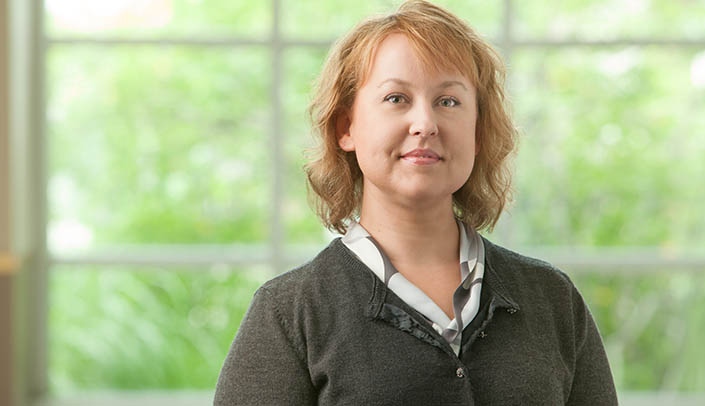The Department of Defense (DoD) Office of the U.S. Air Force Surgeon General has awarded a two-year, $3.7 million contract to the National Strategic Research Institute (NSRI) to advance work on a discovery that could save many lives.
The NSRI at the University of Nebraska is one of 13 University Affiliated Research Centers across the nation delivering relevant and timely research solutions directly impacting DoD operations and national security.
Researchers from UNMC, the University of Nebraska-Lincoln and the University of Colorado Boulder are collaborating to develop a temporary, life-saving solution for Air Force warfighters with severe acute respiratory distress syndrome as a result of traumatic lung injury that normally requires a ventilator to provide oxygen. The system is being designed for use as en route care for military members being transported to a hospital.
The researchers also are collaborating with the Strategic Command at Offutt Air Force Base and the Center for Advanced Surgical Technology housed at UNMC. This is the second phase of the project.
The NSRI received its first contract for this project from the DoD in 2016 when it called for new and innovative research for en route care. The Air Force is responsible for research and developments for advancements in en route patient care.
Principal investigator of the grant, Keely Buesing, M.D., UNMC assistant professor of surgery, said the treatment would deliver oxygenated microbubbles into the abdomen to provide a patient with the oxygen required to keep organs alive, including the brain, while the lungs heal.
Microbubbles are tiny bubbles designed to mimic the function of lung alveoli by releasing oxygen and possibly simultaneously removing carbon dioxide. When infused into body cavities, the oxygen diffuses across the membranes and provides supplemental oxygen.
Dr. Buesing is collaborating with Benjamin Terry, Ph.D., UNL associate professor of mechanical and materials engineering, and Mark Borden, Ph.D., associate professor of mechanical engineering at the University of Colorado Boulder.
A trauma surgeon, Dr. Buesing is developing models and testing the treatment effect on smoke inhalation injury. She said the studies are showing great potential.
“In order for lungs to heal, they need to rest. The best way is to provide oxygen through another means,” she said. “It’s frustrating and sad for me and other physicians to get to a point where we have to tell families we’ve exhausted our therapeutic options and there’s nothing else that can be done. This method would provide us with another option for treatment.”
Dr. Buesing said physicians have been searching for alternatives providing supplemental oxygen for a very long time.
Dr. Terry said the system transforms the abdomen into a third lung, so to speak. He is perfecting a device he invented that would deliver oxygen microbubbles into the abdomen. Another aim is to make a chest tube system that could deliver the microbubbles.
Dr. Borden is working to develop a powder form of microbubbles that could be reconstituted in the field and work for military personnel who have lung injury. He also is developing a large-scale manufacturing process.
“Oxygen microbubbles are tiny gas spheres, with a diameter about 1 percent the width of a human hair,” Dr. Borden said. “The bubbles are concentrated into a liquid foam that functions much like the lung — they can rapidly release oxygen and absorb carbon dioxide when brought into contact with tissue.
“Our lab has spent the past decade perfecting the formulation, and with this next phase of funding, we are engineering it to be easily transported for en route care. We recently spun out a company, Respirogen Inc., to develop the necessary quality systems and scaled-up, aseptic manufacturing to acquire regulatory approval and ultimately translate it to the clinic.”

WOW!
NSRI continues to be a conduit for our docs to save countless lives. This is wonderful!